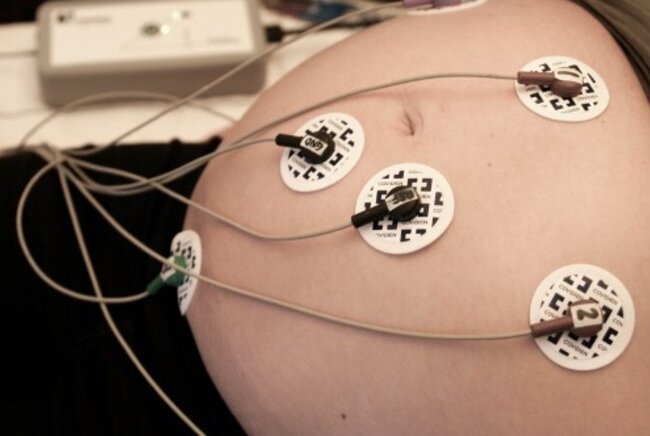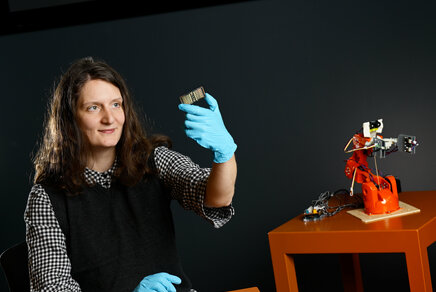Identification of false alarms in fetal monitoring
Olenka Hulsenboom defended her PhD thesis at the department of Electrical Engineering on January 26th.

Most pregnancies and deliveries result culminate in both healthy mothers and babies. In some cases though, unfortunately babies die during pregnancy or childbirth due to preventable issues or complications, such as a lack of oxygen. If doctors and midwives could identify in a timely manner a baby at risk, they could then intervene when it is most necessary. To facilitate this, current monitoring technologies that check on the baby’s wellbeing during delivery should be improved. PhD researcher Olenka Hulsenboom looked at improving ways to identify false alarms for the fetal monitoring method known as ST analysis.
For her PhD research, Olenka Hulsenboom examined ways to improve an existing method known as ST analysis, or STAN for short. “The STAN method is an existing technology to detect the condition of the unborn baby during delivery,” says Hulsenboom. “It analyzes the shape of the fetal electrocardiogram (the electrical signal from the heart) and generates alarms when the baby is at risk of damage through a lack of oxygen.”
Nevertheless, the reliability of the STAN method is under constant debate. Even in babies with a good condition, unnecessary alarms regularly arise.
Correcting for false alarms
For her thesis, Hulsenboom examined whether factors other than the fetal condition can influence the shape of the fetal electrocardiogram, such as the direction of the fetal electrical heart axis and the position of the electrodes that are used to measure the fetal electrocardiogram.
“This could provide an explanation for the ‘false’ alarms that arise in babies in a healthy condition,” notes Hulsenboom. “Along with my colleagues, we found that it may be possible to correct for these factors by adjusting the algorithm for the alarms. These adjusted new alarms, relative ST alarms, could improve the reliability of the STAN method.”
Title of PhD thesis: Relative ST analysis for intrapartum fetal monitoring. Supervisors: Guid Oei, Rik Vullings, and Judith van Laar. The PhD research is part of the Eindhoven MedTech Innovation Center (e/MTIC).
Media contact
Latest news


